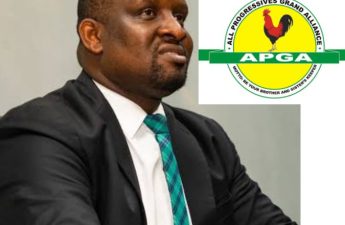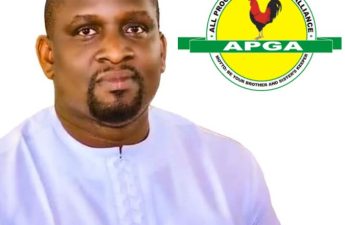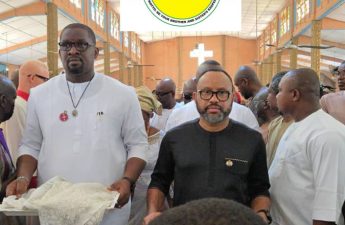Nigeria is losing her experienced and specialist doctors to other countries in Europe, America and Asia because of two major reasons, which are economic and better infrastructure in these more advanced countries. The doctors are moving to societies where they are better paid because staying back in Nigeria keeps them on the poverty belt. A country that devalues its currency like Nigeria has done in relation to other major currencies like the Euro, dollar and pound is definitely going to have a huge crisis within its society.
Nigeria started the devaluation policy from the Babangida military government and since he has remained a god to the ruling elite, none of them has had the wisdom to look at what is wrong structurally and economically with Nigeria. The way salary structures have been fixed in the public and private sectors is not encouraging to entice medical personnel with experience and special skills to remain within Nigeria as everything is a cash-and-carry system. There are no mortgage systems for owning homes and credit systems are non-existent for car owners where down payment can be made for easy car loans. Government schools have been abandoned or are not well-funded and only highbrow privately owned schools are well-funded and well-equipped. This also comes at a high cost as school fees are not regulated and are left to market forces leading to very high and unaffordable fees for the majority. This has also affected housing as this is left to market forces.
What this triggers off is that only well-heeled groups in society can have the basic necessities in Nigeria. House rents are hitting the roof and life in urban areas are becoming “too brutish and nasty”, and since many cannot afford the high rents of apartments within the city, they move to the outskirts. This makes life unbearable as people commute long distances and stay long periods in traffic. This is a huge amount of stress on car owners and those who go on public transport. The Nigerian government has not built a metro train anywhere in the country operating within any of her cities which makes living in these states stressful as traffic gridlocks put a huge pressure on the citizens. Doctors get between $60,000 and $100,000 if they work overseas, an amount they can never get in Nigeria, except only those who own hospitals. These are the major attractions for going overseas; a country that devalued her currency to N360 to a dollar and has just recently upgraded the minimum wage to a hundred dollars a month leaves much to be desired. Nigerian doctors want a good life and the equivalent of what their colleagues earn around different parts of the world.
The World Health Organisation recommends a doctor to about 600 people. Nigeria currently has about 35,000 doctors serving a country of almost 200 million people, meaning we should have 237,000 doctors. But Ngige says we have surplus and can export to other countries. The Nigerian government has to improve on citizens’ health and increase its budget to 15 per cent for the health sector, which currently is at a miserly 4/6 per cent, too low to fund and improve the sector.
Nigerian doctors have had difficult times since 2015 as many state governors refused to pay workers’ salaries. Workers are being owed salaries and their wages ranging from four to 10 months and despite President Muhammadu Buhari giving the state governors bailouts many of them allegedly diverted to buying property overseas. Probes are still in progress in many states concerning the handling of the funds.
The doctors continue to leave Nigeria in droves and are given easy passage to other countries as they are often hardworking and make very few complaints in their new working environments. Hundreds leave the country monthly, a development that is becoming a source of concern as this has led to shortage of experienced and specialised doctors. The relocation has triggered the exodus of government officials, politicians and political appointees and the well-heeled in society to get medical treatment and checks overseas. The successful in Nigeria don’t use Nigerian hospitals; if they have a headache, they are on their way to Europe and America.
The questions now are what the Federal Government is doing to the challenge of inadequate manpower in the health sector and what is the leadership going to do to turn things around for the benefit of the Nigerian people.
BAYO ADEOLU, tadyl@outlook.com



